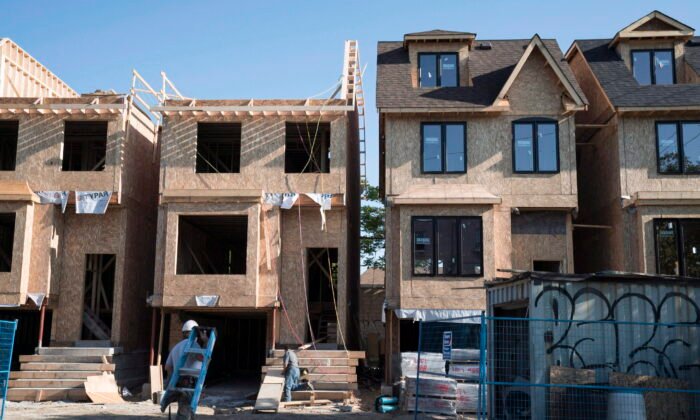Construction Experts Skeptical of Government’s Plan to Build Nearly 3.9M Homes by 2031
The goal set by the federal government to construct nearly 3.9 million new homes by 2031 has been deemed unrealistic and unattainable by construction experts who spoke to Members of Parliament.
“Once cranes come down, they won’t be going back up. We are seeing a major decline, and our subcontractor pipelines are drying up,” he added.
Mr. Lyall expressed his doubts about the feasibility of the federal target to build 3.87 million homes by 2031, pointing to decreasing new housing starts due to high financing costs and development charges.
“We are experiencing a slowdown once again. There are multiple framing crews sitting idle at home,” Mr. Lyall remarked.
“Construction costs are currently very high,” noted Mr. Lee, echoing Mr. Lyall’s concerns during the committee session.
Mr. Lyall emphasized the urgency of addressing growth management issues, describing the current situation in the country as a “crisis moment” extending beyond just housing.
“The statistics are truly alarming when you delve into them,” he stated.
Affordable Housing
Ottawa has pledged to construct 3.87 million new homes by 2031, setting an unprecedented pace for construction in Canada. To achieve this, the country would need to see 731,500 new starts annually in addition to its current construction rates.
Funding alone cannot resolve the affordable housing crisis, according to Mr. Lee.
“While funding is crucial, it is not the sole solution to the affordable housing problem,” he emphasized.
Mr. Lyall pointed out that the challenges in the housing sector have been accumulating over decades, attributing the current situation to excessive bureaucracy, lack of coordination among different levels of government, and inefficiencies in the approval processes.
“We have been advocating for modernizing and digitizing our approval processes for development and construction for over ten years,” Mr. Lyall informed the committee. “Unfortunately, progress has been slow, lagging behind other jurisdictions. Municipalities are ill-equipped to handle this task due to lack of expertise and economies of scale.”
Rising Costs
RBC assistant chief economist Robert Hogue warned that the housing crisis in Canada could worsen if construction fails to keep up with demand.
Increasing demand without a corresponding increase in supply leads to higher housing costs, with prices surging by 50 percent in the past two years, causing significant strain on homebuyers, Mr. Hogue explained.
“This surge has had a ripple effect across the rental market, pushing many people into rentals that are now unaffordable, subsequently forcing them into social housing,” he added.
Mr. Hogue stressed the need for swift action by the government to address supply issues, citing his recent report on the housing crisis.
The inflated costs of materials, combined with labor expenses and government charges comprising over 20 percent of construction costs, have contributed to the skyrocketing cost of building new homes, Mr. Hogue pointed out.
“Efforts should be focused on reducing or at least stabilizing every cost component,” he suggested.
Mr. Lyall highlighted the impact of municipal development charges on housing costs, noting that they are at 31 percent in the GTA and 30 percent in B.C., the highest in North America.
“These charges disproportionately affect first-time buyers and are unsustainable,” Mr. Lyall stated. “We are essentially taxing housing like sin products, which is nonsensical.”
Conservative MP Scott Aitchison pointed out that development charges have risen by approximately 400 percent over the past decade.
“Who ultimately bears these charges?” he inquired of Mr. Lyall.
“Consumers bear the burden of these taxes, which are regressive and inequitable, hitting the most vulnerable individuals the hardest, going against Canadian principles,” Mr. Lyall responded. “These charges have spiraled out of control.”



